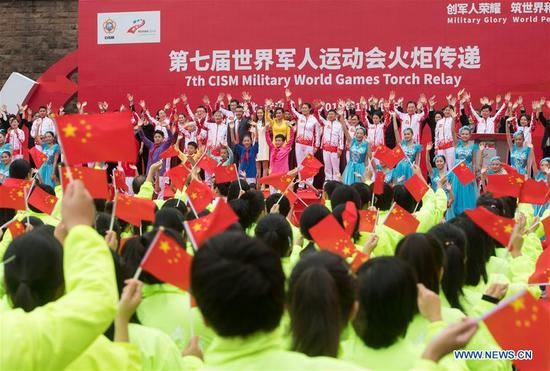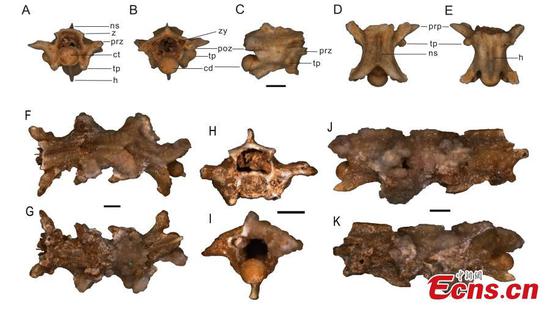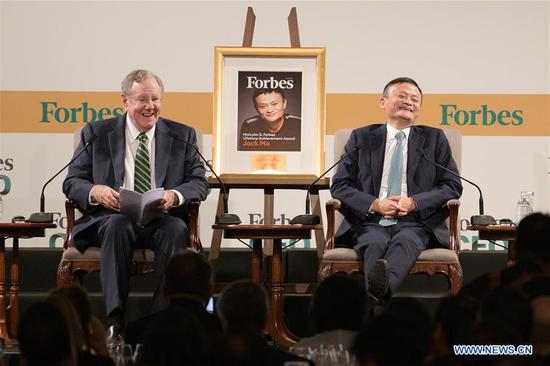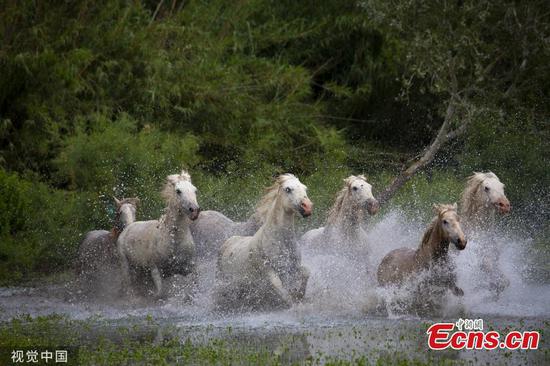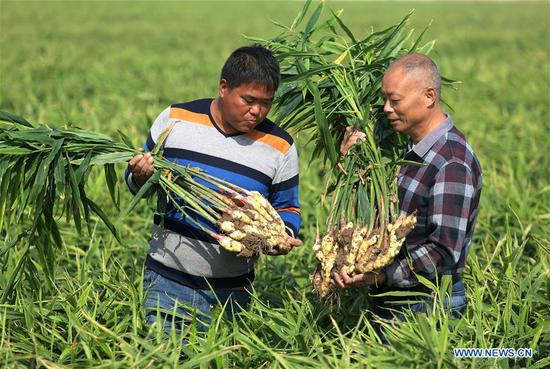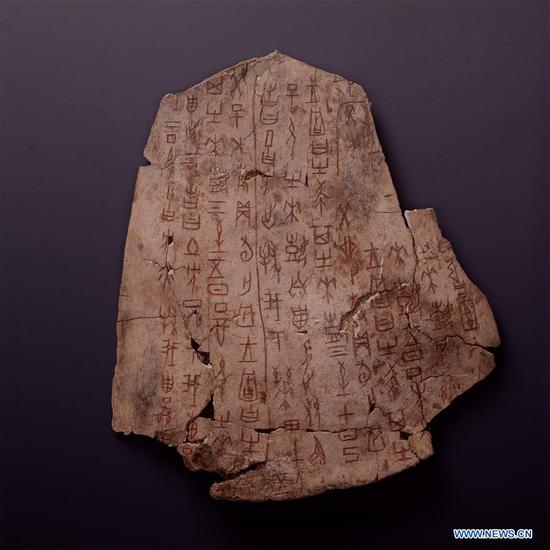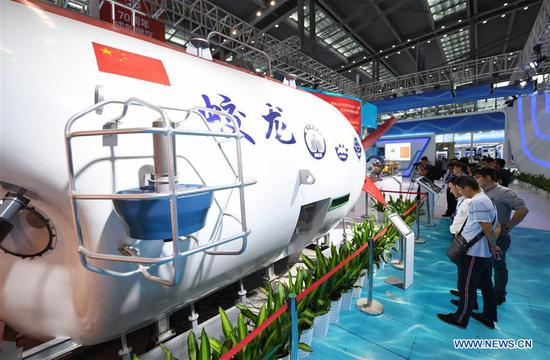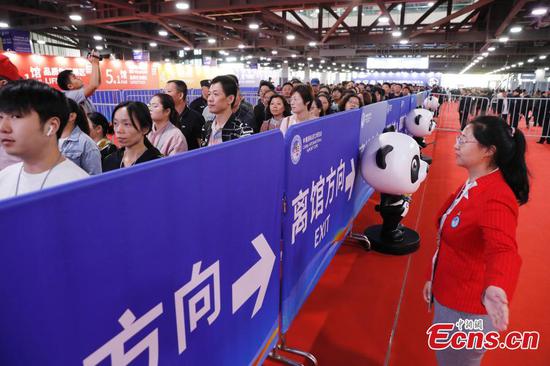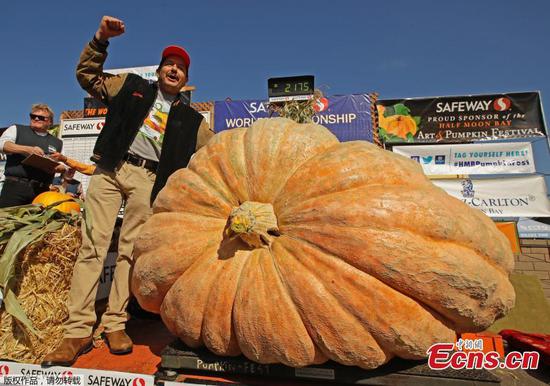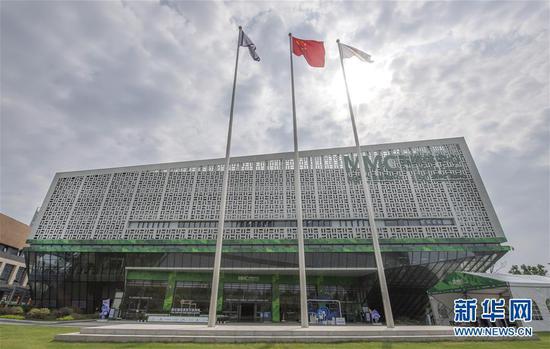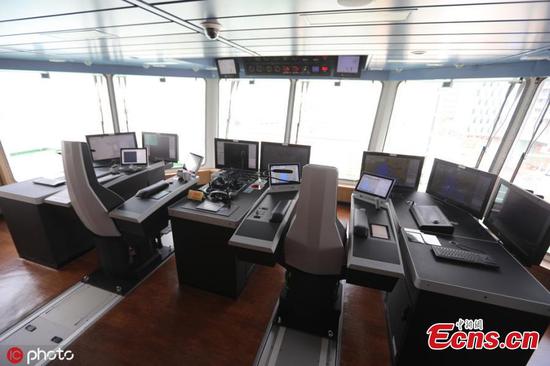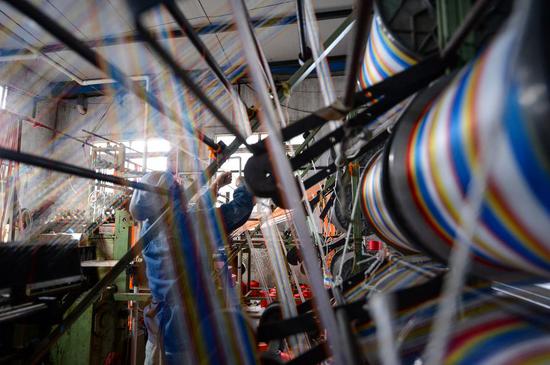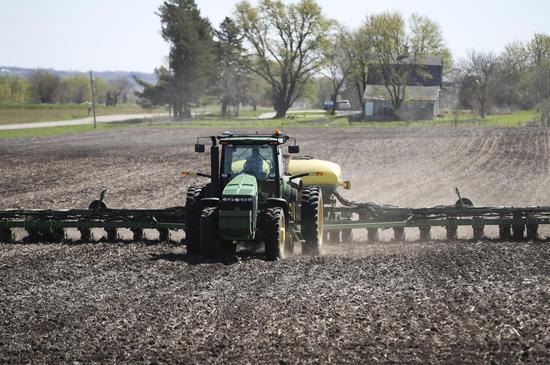
Grant Kimberley, a sixth-generation soybean farmer and marketing director of the Iowa Soybean Association, operates a seeding machine at his family farm in Maxwell, Iowa, the United States, April 26, 2019. (Xinhua/Wang Ying)
U.S. farmers, pork producers and politicians are "cautiously optimistic" that there will be a resolution in the tit-for-tat trade dispute between the U.S. and China after President Donald Trump announced a deal had been stuck "in principal".
The initial proposals between the U.S. and China include moves on agriculture and a suspension of a tariff increase from 10 to 25 percent on $250 billion worth of Chinese goods that was scheduled for Oct 15.
China also suspended its retaliatory tariffs and reportedly agreed to buy $40 billion to $50 billion worth of agricultural purchases, including 30 million metric tons of soybeans and an undisclosed amount of pork.
Tim Bardole, Iowa Soybeans Association president and a soybean farmer in Rippey, Iowa, said in a statement:
"We are cautiously optimistic that this latest announcement of a breakthrough in negotiations will result in a comprehensive trade agreement.
"Over the past two years, U.S. soybean exports to the country of 1.4 billion people have declined by almost two-thirds. In return, domestic soybean prices have dropped significantly, as America's producers have been relegated to a secondary supplier to China. Knowing that we'll have improved market opportunities for the soybeans we're harvesting is good for morale and prices."
The proposed deal was announced by Trump on Friday during a White House visit by Chinese Vice-Premier Liu He, who was involved in negotiations with U.S. representatives. Trump said the two sides had reached "phase one" of a trade deal, the details of which have not yet been finalized but will be in three weeks.
Before the trade war, China bought $20 billion to $25 billion worth of U.S. agricultural products a year.
Last year, sales of U.S. soybeans to China fell 74 percent to $3.1 billion. Pork sales also took a hit, dropping 21 percent to $852 million.
Jim Monroe, senior director of communications at the National Pork Producers Council, told China Daily: "We think it's great news. …What we'd really like to see is a permanent exclusion from any punitive tariffs and to have sustained favorable access to what is the world's largest pork-consuming nation."
American pork producers are keen to sell goods to China, as much of Asia and Europe's pork industry has been decimated by an outbreak of African swine fever. In August 2018, China confirmed the outbreak and has since culled more than 1 million pigs.
"African swine fever has reduced domestic production [in China] by as much as 50 percent, according to some estimates," Monroe added. "Obviously, that's a huge opportunity for U.S. pork producers."
African swine fever was first detected in East Africa in the early 1990s. It then spread to sub-Saharan Africa and countries in Europe.
Munroe said that the disease does not pose a threat to humans, just swine and pigs. He added that it is not yet an issue among U.S. pork producers.
"USDA and U.S. Customs and Borders inspections have responded very favorably with more inspections, scrutiny, and there has been investment in what is known as the 'Beagle brigade' – to have more beagles at sea and airports to detect pork products being illegally exported. There is concern but there have been steps taken to increase biosecurity ..."
Iowa Republican U.S. Senator Chuck Grassley called the announcement of a potential trade deal "positive," but said he wanted more information.
"Farmers in Iowa know far too well that the trade war has caused real financial pain in the heartland," Grassley said in a statement. "But we need to know more about this deal, and follow-through from China will be key."












